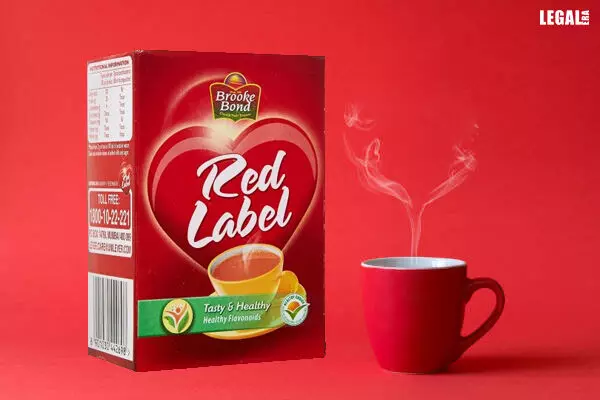- Home
- News
- Articles+
- Aerospace
- AI
- Agriculture
- Alternate Dispute Resolution
- Arbitration & Mediation
- Banking and Finance
- Bankruptcy
- Book Review
- Bribery & Corruption
- Commercial Litigation
- Competition Law
- Conference Reports
- Consumer Products
- Contract
- Corporate Governance
- Corporate Law
- Covid-19
- Cryptocurrency
- Cybersecurity
- Data Protection
- Defence
- Digital Economy
- E-commerce
- Employment Law
- Energy and Natural Resources
- Entertainment and Sports Law
- Environmental Law
- ESG
- FDI
- Food and Beverage
- Gaming
- Health Care
- IBC Diaries
- In Focus
- Inclusion & Diversity
- Insurance Law
- Intellectual Property
- International Law
- IP & Tech Era
- Know the Law
- Labour Laws
- Law & Policy and Regulation
- Litigation
- Litigation Funding
- Manufacturing
- Mergers & Acquisitions
- NFTs
- Privacy
- Private Equity
- Project Finance
- Real Estate
- Risk and Compliance
- Student Corner
- Take On Board
- Tax
- Technology Media and Telecom
- Tributes
- Viewpoint
- Zoom In
- Law Firms
- In-House
- Rankings
- E-Magazine
- Legal Era TV
- Events
- News
- Articles
- Aerospace
- AI
- Agriculture
- Alternate Dispute Resolution
- Arbitration & Mediation
- Banking and Finance
- Bankruptcy
- Book Review
- Bribery & Corruption
- Commercial Litigation
- Competition Law
- Conference Reports
- Consumer Products
- Contract
- Corporate Governance
- Corporate Law
- Covid-19
- Cryptocurrency
- Cybersecurity
- Data Protection
- Defence
- Digital Economy
- E-commerce
- Employment Law
- Energy and Natural Resources
- Entertainment and Sports Law
- Environmental Law
- ESG
- FDI
- Food and Beverage
- Gaming
- Health Care
- IBC Diaries
- In Focus
- Inclusion & Diversity
- Insurance Law
- Intellectual Property
- International Law
- IP & Tech Era
- Know the Law
- Labour Laws
- Law & Policy and Regulation
- Litigation
- Litigation Funding
- Manufacturing
- Mergers & Acquisitions
- NFTs
- Privacy
- Private Equity
- Project Finance
- Real Estate
- Risk and Compliance
- Student Corner
- Take On Board
- Tax
- Technology Media and Telecom
- Tributes
- Viewpoint
- Zoom In
- Law Firms
- In-House
- Rankings
- E-Magazine
- Legal Era TV
- Events
Calcutta High Court acquits Hindustan Unilever officials in Red Label Tea misbranding case

Calcutta High Court acquits Hindustan Unilever officials in Red Label Tea misbranding case
The judge found discrepancies in the prosecution's case noting that no explanation was forthwith on the accusations
The Calcutta High Court has acquitted the office bearers of Hindustan Unilever Limited in a criminal case filed for allegedly misbranding its product Red Label Natural Care Tea.
In the Hindustan Unilever Limited vs State of West Bengal case, Justice Subhendu Samanta noted certain discrepancies in the prosecution's case against Hindustan Unilever and its office bearers. He stated that the public analyst who gave an opinion that Brook Bond Red Label Tea was misbranded, was never produced by the prosecution before the trial court. Also, the prosecution never explained any reason as to why the company was accused of misbranding its product.
A food inspector of the Kolkata Municipal Corporation (KMC) registered a criminal case against Hindustan Unilever and its office bearers (petitioners) for allegedly misbranding its Red Label tea product.
The company was accused of violating Section 38 of the Prevention of Food Adulteration Act, 1954, which prohibits using any reference to the Act, rules, etc. on its label. Further, it was blamed for violating Section 39, prohibiting the use of the words 'recommended by medical profession.'
In 2014, the petitioners were convicted for misbranding the product by a municipal magistrate who sentenced them to six months of simple imprisonment along with a fine of Rs.5,000.
However, the sessions court set aside the conviction, and the matter was remitted back to the municipal magistrate to consider it afresh.
Meanwhile, the company approached the high court challenging the order of the sessions court to send the matter back to the magistrate.
The high court allowed the plea and concluded that the sessions court should have acquitted the accused rather than sending the matter for a re-trial. It maintained that since the session court found discrepancies in the prosecution's case, it should have dismissed the case and allowed the appeal.
While acquitting all the accused, Justice Subhendu Samanta held, "The deformity, as well as the discrepancies, appeared in the prosecution case cannot be cured by only remanding back the case from the stage of examination of accused under Section 313 of the Criminal Procedure Code (CrPC). Moreover, the appellate court should not have allowed the prosecution to cure the defect by which the accused would be prejudiced.”
Advocates Sabyasachi Banerjee, Anirban Dutta, and Abhijit Chaudhury appeared for the Hindustan Unilever.
Kolkata Municipal Corporation was represented by advocates Gautam Dinha and Anindyasundar Chatterjee.
Advocates Imran Ali and Debjani Sahu guided the State.


